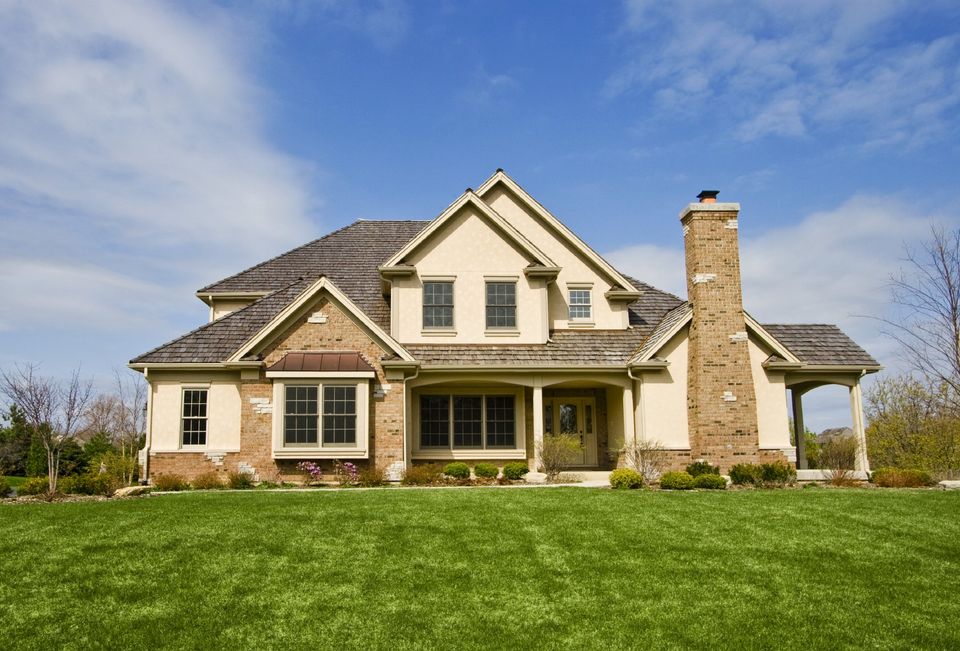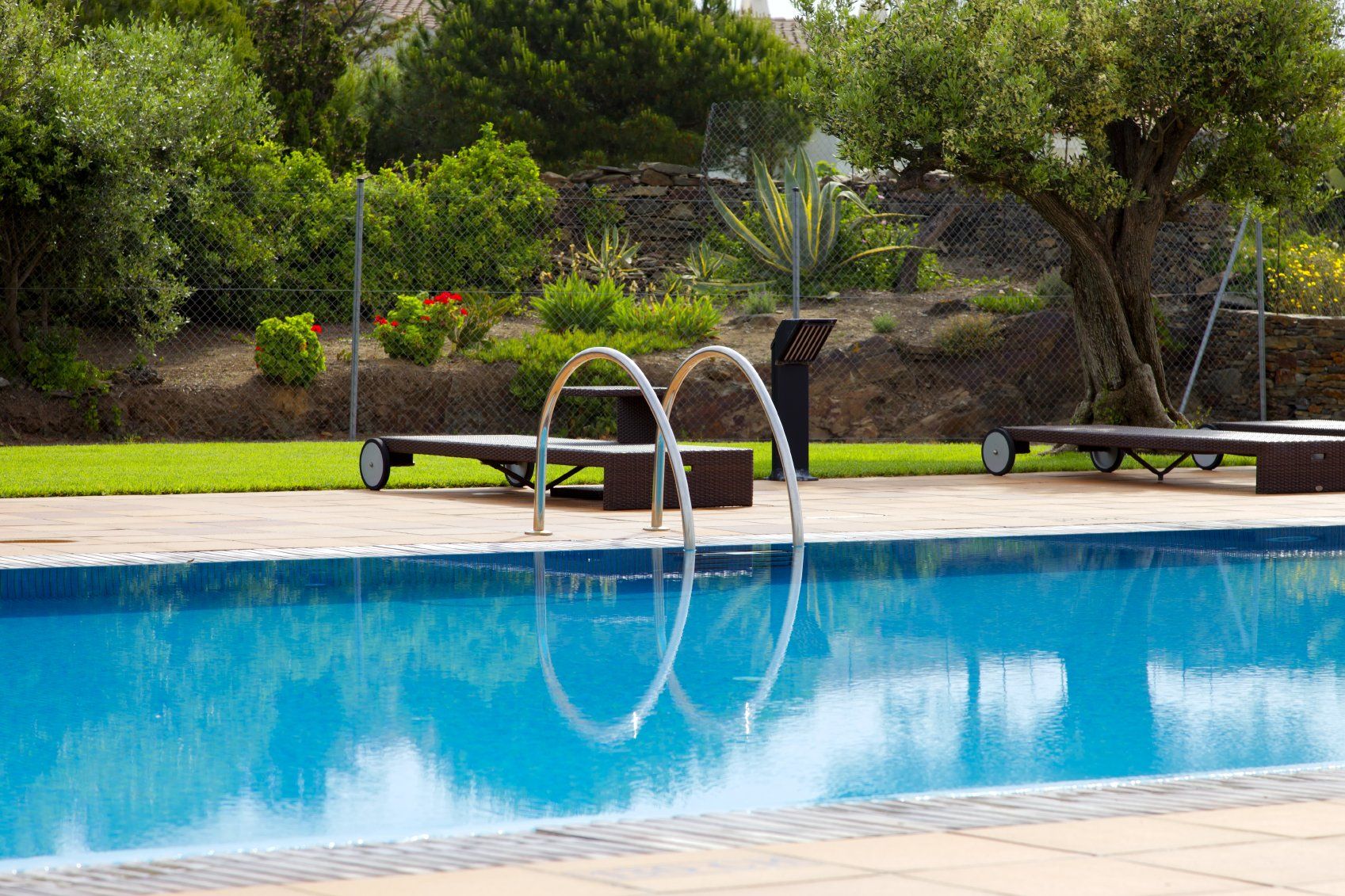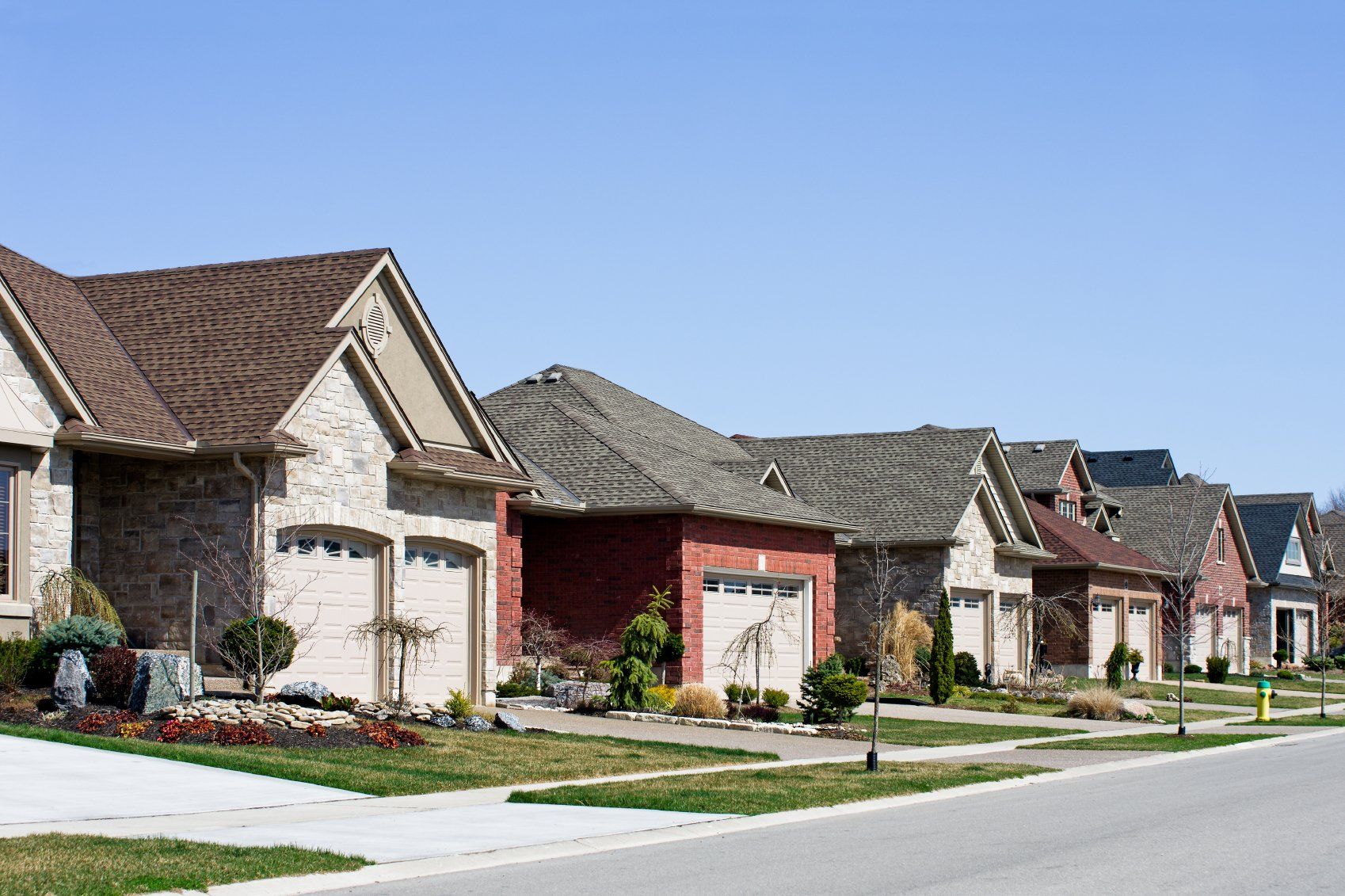Residential Real Estate: Tips for the Attorney Review Process
Law Office of Kaitlyn R. Campanile, LLC • August 14, 2020

In New Jersey, residential real estate contracts that are drafted by realtors contain an “attorney review” clause. This means that after the Buyer and Seller execute the contract, both parties have an opportunity to have an attorney review the contract.
Here are some quick tips to keep in mind upon signing a residential real estates contract:
- The clock starts running almost immediately. Upon both parties receiving a fully executed copy of the contract, the attorney review period starts on the next business day. For example, if you receive the fully-executed contract on Tuesday, your attorney review period starts the next day, on Wednesday.
- Attorney review lasts for three business days. Attorney review lasts for three business days. Weekends and holidays do not count towards the three-day time period. Attorney review can be extended if the parties are working on modifications to the contract.
- Ask anything. This is your opportunity to ask your attorney what certain provisions of the contract mean. If you have concerns about specific details of the contract, this is your chance to discuss them further with counsel.
- Finalize the contract. During attorney review, you will discuss with your attorney whether you want to accept the contract as is, request changes to the contract, or reject the contract altogether, and thus, end the deal. The parties can negotiate requested changes to the contract, and the attorneys will typically sign an addendum or rider to the contract, with the consent of their clients, to update the terms of the contracts and thus conclude attorney review.
- Inaction can lead to unintended consequences. Be forewarned that if the contract is not disapproved or modified during attorney review, the contract becomes binding (as is) at the conclusion of the attorney review period.
After signing a residential real estate contract, it’s important to contact an attorney in a timely manner if you have not done so already. Your attorney can help you navigate the entire process, from contract to closing.
If you are considering buying or selling a home, you can contact the Law Office of Kaitlyn R. Campanile, LLC here.
This information should not be considered legal advice and is not intended as a substitute for consultation with an attorney.

New Jersey Assembly Bill 5492, which is pending before the Assembly Housing Committee, would require that Board of Trustee members of planned real estate developments attend training at the outset of the Board member’s term of office. Specifically, the training would need to be completed within 180 days following the start of the Board member’s term. The training would only need to be completed once in the event that a Board member served more than one term. The current text of the Bill seeks for the Commissioner of Community Affairs to create a training program, at least three (3) hours in length, to provide “information and guidance on all of the matters relevant and necessary to most effectively enable a board member to perform the member’s duties […].” The Bill also empowers the Commissioner to remove any Board member who fails to complete the training. The full text of the pending Bill can be found here . If your community association has questions about the duties of Board of Trustee members, you can contact the Law Office of Kaitlyn R. Campanile, LLC here . This information should not be considered legal advice and is not intended as a substitute for consultation with an attorney.

As of July 1, 2021, Senate Bill S3584 was signed into law, providing planned real estate developments with legal protection against liability for COVID-19-related claims in certain circumstances. The immunity provided under the law would not apply to “acts or omissions constituting a crime, actual fraud, actual malice, gross negligence, recklessness, or willful misconduct.” It should also be noted that the law provides that communities must prominently display signs "at the entrance of any communal space [...] shared by residents and their guests," stating the following warning: “ANY PERSON ENTERING THE PREMISES WAIVES ALL CIVIL LIABILITY AGAINST THE PLANNED REAL ESTATE DEVELOPMENT FOR DAMAGES ARISING FROM, OR RELATED TO, AN EXPOSURE TO, OR TRANSMISSION OF, COVID-19 ON THE PREMISES, EXCEPT FOR ACTS OR OMISSIONS CONSTITUTING A CRIME, ACTUAL FRAUD, ACTUAL MALICE, GROSS NEGLIGENCE, RECKLESSNESS, OR WILLFUL MISCONDUCT.” The law is set to expire on January 1, 2022. New Jersey community associations should carefully review this law when making decisions regarding the re-opening of community facilities in light of COVID-19. The full text of the law can be found here . If your community association has questions about COVID-19 and potential legal liability or the re-opening of association facilities, you can contact the Law Office of Kaitlyn R. Campanile, LLC here . This information should not be considered legal advice and is not intended as a substitute for consultation with an attorney.

New Jersey Senate Bill S3584, introduced on March 25, 2021, was passed unanimously by the Senate on June 3, 2021. The purpose of the Bill is to provide planned real estate developments with legal protection against liability for COVID-19-related claims. This Bill is identical to New Jersey Assembly Bill A4979 that was introduced on November 12, 2020 and remains pending. The purpose of S3584 and A4979 is to prohibit any causes of action for damages “arising from a COVID-19 exposure or transmission on the premises of a planned real estate development.” It should be noted that the immunity would not apply to “acts or omissions constituting a crime, actual fraud, actual malice, gross negligence, recklessness, or willful misconduct.” New Jersey community associations should keep an eye on the progression of this Bill in the Assembly. This legislation could potentially simplify the difficult decision-making process for Boards of Trustees when determining whether to re-open community facilities. For updated information relating to A4979, you can check its current status here . For information regarding S3584, you can click here . If your community association has questions about COVID-19 and potential legal liability or the re-opening of association facilities, you can contact the Law Office of Kaitlyn R. Campanile, LLC here . This information should not be considered legal advice and is not intended as a substitute for consultation with an attorney.

With summer just around the corner and the state of the COVID-19 pandemic improving, the New Jersey Department of Health issued updated COVID-19 Pools and Aquatic Recreation Facility Standards on May 19, 2021. The full text of the Department of Health's Standards can be found here . The Department of Health still recommends that all pool facilities review the CDC’s guidance on operating and managing public pools and hot tubs during the COVID-19 pandemic “to assist with making decisions prior to opening.” It should be noted that pools are no longer subject to a percentage-based capacity limit per Governor Murphy’s Executive Order No. 239 . Instead, pools “must instead limit occupancy to a number that ensures that all patrons or groups of patrons entering the facility together can remain six feet apart.” In addition, Executive Order No. 241 modified outdoor masking requirements, and as a result, individuals are no longer required to wear masks in outdoor settings, such as at a community pool, but unvaccinated individuals are still strongly encouraged to continue mask-wearing. Requirements that were created by prior versions of the Department of Health’s directive remain in place, such as creating a “COVID-19 Pool Operation Prevention Plan" and posting signage that reminds patrons to frequently wash hands, not touch their faces with unwashed hands, practice social distancing, etc. Community association Boards of Trustees and property managers should review and discuss the recent Executive Orders and Department of Health Standards in light of the upcoming 2021 summer season, with an open mindsight that restrictions could continue to change in the near future. The health and safety of the residents and guests of the community association should be considered, as well as the potential additional operation costs of re-opening a community pool while COVID-19 restrictions remain in place. If you have questions about community associations during the COVID-19 pandemic, or any other condo or HOA issue, you can contact the Law Office of Kaitlyn R. Campanile, LLC here . This information should not be considered legal advice and is not intended as a substitute for consultation with an attorney.

New Jersey Senate Bill S3584, introduced on March 25, 2021, could provide planned real estate developments with legal protection against liability for COVID-19-related claims. This Bill is identical to New Jersey Assembly Bill A4979 that was introduced on November 12, 2020. The purpose of S3584 and A4979 is to prohibit any causes of action for damages “arising from a COVID-19 exposure or transmission on the premises of a planned real estate development.” It should be noted that the immunity would not apply to “acts or omissions constituting a crime, actual fraud, actual malice, gross negligence, recklessness, or willful misconduct.” New Jersey community associations should continue to monitor the progression of this pending legislation. This legislation could potentially simplify the difficult decision-making process for Boards of Trustees when determining whether to re-open community facilities. For updated information relating to A4979, you can check its current status here . For updated information relating to S3584, you can check its current status here . If your community association has questions about COVID-19 and potential legal liability or the re-opening of association facilities, you can contact the Law Office of Kaitlyn R. Campanile, LLC here . This information should not be considered legal advice and is not intended as a substitute for consultation with an attorney.

With warmer weather approaching, it is time again for New Jersey community associations to turn their attention towards the question of re-opening amenities. Throughout the entirety of the 2020 summer season, many community associations chose to keep their pools and recreational areas closed. Current State of Community Association Pools Executive Order No. 153 , issued on June 9, 2020, provided that outdoor swimming pools could open effectively on Monday, June 22, 2020. On July 2, 2020, Executive Directive 20-022 was released, which provided Health and Safety Standards for pools and aquatic recreation facilities pursuant to Executive Order No. 153. Since then, Executive Directive 20-022 has been superseded by Executive Directive 20-031 and was most recently revised on March 18, 2021. Some of the key points of the Executive Directive were discussed in a prior blog post that can be found here . In summary, community associations would need to take many measures to ensure compliance with the State’s requirements, such as creating a “COVID-19 Pool Operation Prevention Plan,” requiring cloth face coverings for all individuals who are out of the pool when social distancing cannot be maintained, training of pool personnel regarding COVID-19 awareness, cleaning, and sanitizing, designating a COVID-19 ambassador to monitor and encourage social distancing and oversee equipment sanitization, designating a COVID-19 contact person, maintaining sign-in sheets for all staff and guests, and more. What Happens Next? As of right now, the measures put in place last year by the State remain as is for the upcoming summer season. With the COVID-19 vaccine becoming more widely available, it is certainly possible that additional Executive Orders will be issued in the coming months that could possibly reduce or change the requirements for community association pools. In addition, the New Jersey Department of Health could issue guidelines that provide further instruction or clarification for community associations trying to navigate compliance with Executive Order(s). Community association Boards of Trustees and property managers should review and discuss Executive Order No. 153 and the current Executive Directive in light of the upcoming 2021 summer season, with an open mindsight that restrictions could change in the near future. The health and safety of the residents and guests of the community association should be considered, as well as the potential additional operation costs of re-opening a community pool while COVID-19 restrictions remain in place. If you have questions about community associations during the COVID-19 pandemic, or any other condo or HOA issue, you can contact the Law Office of Kaitlyn R. Campanile, LLC here . This information should not be considered legal advice and is not intended as a substitute for consultation with an attorney.

General liability insurance for community associations will typically not cover personal injury claims arising from alleged exposure to the coronavirus, which has caused concern among community associations. However, New Jersey Assembly Bill A4979, introduced on November 12, 2020, could provide planned real estate developments with legal protection against liability for COVID-19 claims. The purpose of the bill is to prohibit any causes of action for damages “arising from a COVID-19 exposure or transmission on the premises of a planned real estate development.” It should be noted that the immunity would not apply to “acts or omissions constituting a crime, actual fraud, actual malice, gross negligence, recklessness, or willful misconduct.” Community associations should keep a close eye on this pending legislation, particularly in the coming months, when associations contemplate re-opening portions of the property that may have been closed throughout the pandemic, such as community gyms and pools. For updated information relating to A4979, you can check its current status here . If your community association has questions about COVID-19 and potential legal liability, you can contact the Law Office of Kaitlyn R. Campanile, LLC here . This information should not be considered legal advice and is not intended as a substitute for consultation with an attorney.

On October 19, 2020, legislation was signed into law that provides detailed instruction to community associations and residents regarding the installation of electric vehicle charging stations (“charging stations”). N.J.S.A. 45:22A-48.4. With an increasing number of electric vehicles on the road, associations can anticipate eventually receiving requests from residents for the installation of charging stations. It should be noted that the law supplements New Jersey’s Planned Real Estate Development Full Disclosure Act, N.J.S.A. 45:22A-21, et seq., and therefore, applies to homeowners associations and condominium associations alike. Some of the noteworthy takeaways from the recent legislation include: Associations cannot prohibit or unreasonably restrict the installation of charging stations. Associations must generally allow an owner to install and use a charging station in the owner’s designated parking space or in a common area parking space through a license granted by the association in accordance with the statute. Any language to the contrary in an association’s recorded Governing Documents, rules and regulations, or any deeds, contracts, etc., is deemed void and unenforceable. Associations can require that owners ask for approval to install and use a charging station. If an association wants to require an approval process for an owner to install and use a charging station, an owner’s application should be reviewed and processed in the same way that the association examines architectural modification applications. The statute provides that the association cannot unreasonably or willfully delay providing a response to an owner’s application, and that the association must provide its response in writing. Importantly, the law provides that if an association fails to provide a response to an owner’s request within sixty (60) days, the request is deemed approved, unless it was a result of the association requesting additional, reasonable information from the owner or if the association is installing electrical upgrades to accommodate the charging station(s). If an association approves an owner’s request, the legislation provides that the owner and association should agree in writing that: • The charging station will comply with the association’s “architectural standards.” • The owner will engage a licensed electrician to install all necessary electrical lines and infrastructure. • The owner will obtain insurance protecting the association and other owners from damage related to the charging station within fourteen (14) days of approval and before installation, and provide evidence of same to the association. • The owner will pay for the electricity usage associated with the charging station. • The owner will pay for reasonable charges set by the association for the review and approval of an application and any related, reasonable engineering and/or legal fees. Associations can impose a special assessment to unit owners who have installed and/or who have applied to install charging stations. If the association needs additional electrical infrastructure to provide sufficient electricity for charging stations, the association may charge a special assessment to owners who have installed and/or who have applied to install charging stations. If need be, the association can require that an owner pay the special assessment before allowing installation of the charging station. Associations can install charging stations in common area parking spaces if the need arises. The association can grant a license to an owner to exclusively utilize a common area parking space for a defined period of time for a charging station. The association could also choose to install charging stations in common area parking spaces for the use of all owners and can adopt reasonable rules and regulations regarding the use of same. The full text of the legislation can be found here . If your association has questions regarding charging stations or the approval process for charging stations, you can contact the Law Office of Kaitlyn R. Campanile here . This information should not be considered legal advice and is not intended as a substitute for consultation with an attorney.

Zillow Research has published its predictions for the 2021 housing market, which provide optimism and good news for buyers and sellers alike. The full text of Zillow’s article can be found here . According to Zillow’s findings, despite the global pandemic, housing sales grew almost 6% in 2020. Based on numerous factors, such as the present strength of the market through these colder winter months, the COVID-19 vaccine rollout through 2021, and the hope of increased economic certainty on the horizon, Zillow believes that 2021 could see the “biggest annual sales growth since 1983,” estimating that almost 6.9 million homes could be sold this year. While Zillow predicts that mortgage rates may increase slightly in 2021, Zillow reasonably predicts that this will not necessarily drive down demand – but it may “end up pricing out some buyers,” especially would-be first-time homeowners. Zillow “expects a perfect storm of market conditions” for sales in the spring of 2021. Because spring is generally considered the best time to list a home for sale, plus the idea of schools and communities reopening to some degree by spring, some sellers and buyers who may have been hesitant to make moves during the worst of the pandemic may be ready to take action by the spring. Zillow also suggests that while there was downturn in the demand for city living in 2020, the attractiveness of the city lifestyle will return in 2021 as the COVID-19 vaccine is made widely available and reopening gradually occurs. Coupled with the fact that many urban areas saw a decline in rental prices in 2020, city living may make a large comeback in the coming year. If you are considering buying or selling a home, you can contact the Law Office of Kaitlyn R. Campanile, LLC here . This information should not be considered legal advice and is not intended as a substitute for consultation with an attorney.

In New Jersey, a Seller of residential real estate is required to disclose latent defects regarding the condition of the property that is being sold. The New Jersey Administrative Code provides a sample form, called the Property Condition Disclosure Statement, which is a is “a writing […] signed by the seller and containing information on the condition of the property being sold.” N.J.A.C. 13:45A-29.1. The sample form includes the following pertinent information to inform the Seller and Buyer: The purpose of this Disclosure Statement is to disclose, to the best of Seller's knowledge, the condition of the Property, as of the date set forth below. The Seller is aware that he or she is under an obligation to disclose any known material defects in the Property even if not addressed in this printed form. Seller alone is the source of all information contained in this form. All prospective buyers of the Property are cautioned to carefully inspect the Property and to carefully inspect the surrounding area for any off-site conditions that may adversely affect the Property. Moreover, this Disclosure Statement is not intended to be a substitute for prospective buyer's hiring of qualified experts to inspect the Property. The form requests certain information from the Seller, for example: the age of the roof, whether the property has any sump pumps, whether the Seller is aware of any mold within any structures on the property, and so on. It is imperative for the Seller to thoroughly and truthfully disclose any latent defects that the Seller has actual or constructive knowledge of to the Buyer. Latent material defects can include problems like a foundation problem, defective drywall, or a hidden oil tank. If the Seller fails to disclose a latent defect that the Seller had actual or constructive knowledge of, the Seller can later be held liable for same by the Buyer. However, the Buyer would have the burden of proving that the Seller knew or should have known about the defect and failed to disclose it. For Sellers, it is important to fully disclose any and all latent defects in order to allow the Buyer to fully contemplate the transaction and to help protect yourself from potential liability after your closing. For Buyers, it is essential to review the Seller’s disclosures to make an informed decision about the property that you are purchasing. If you are considering buying or selling a home, you can contact the Law Office of Kaitlyn R. Campanile, LLC here . This information should not be considered legal advice and is not intended as a substitute for consultation with an attorney.
